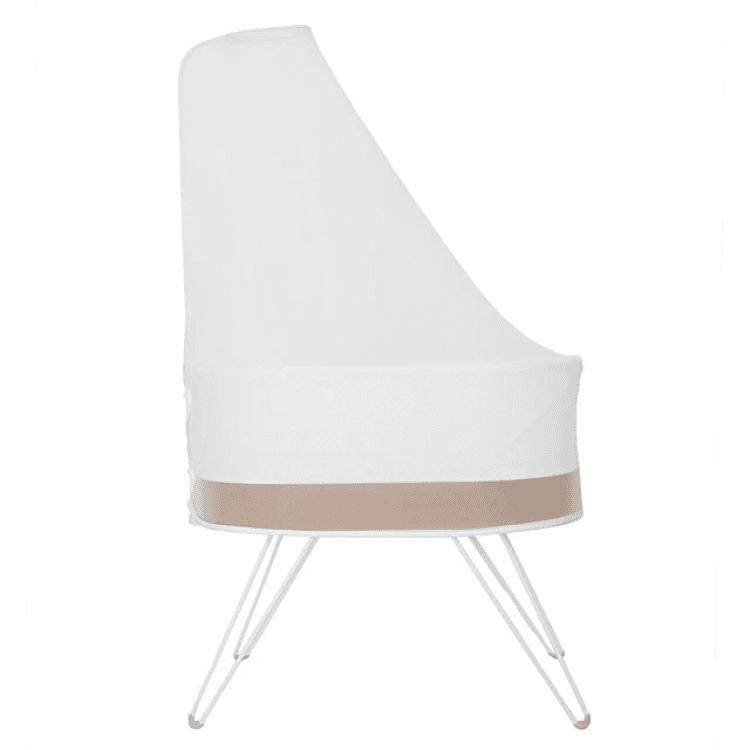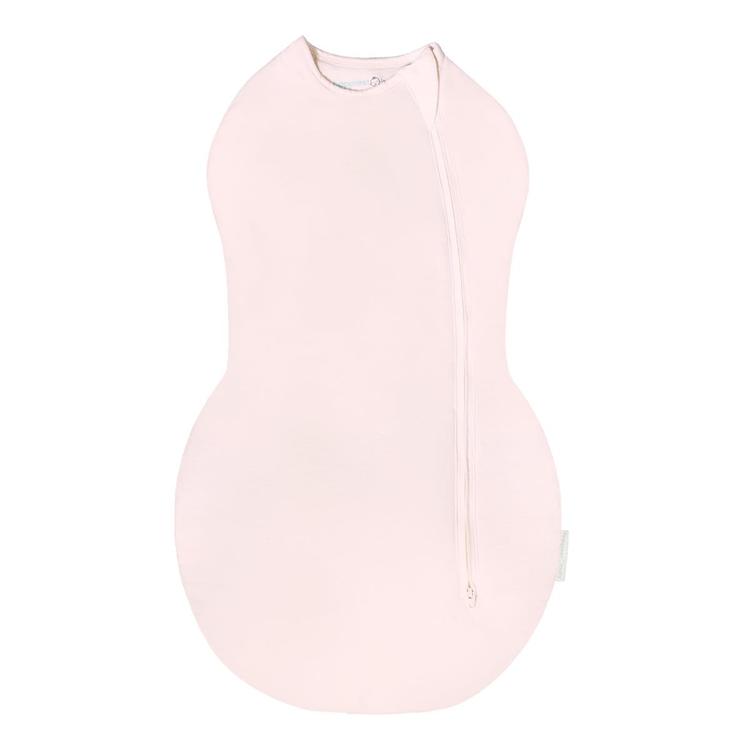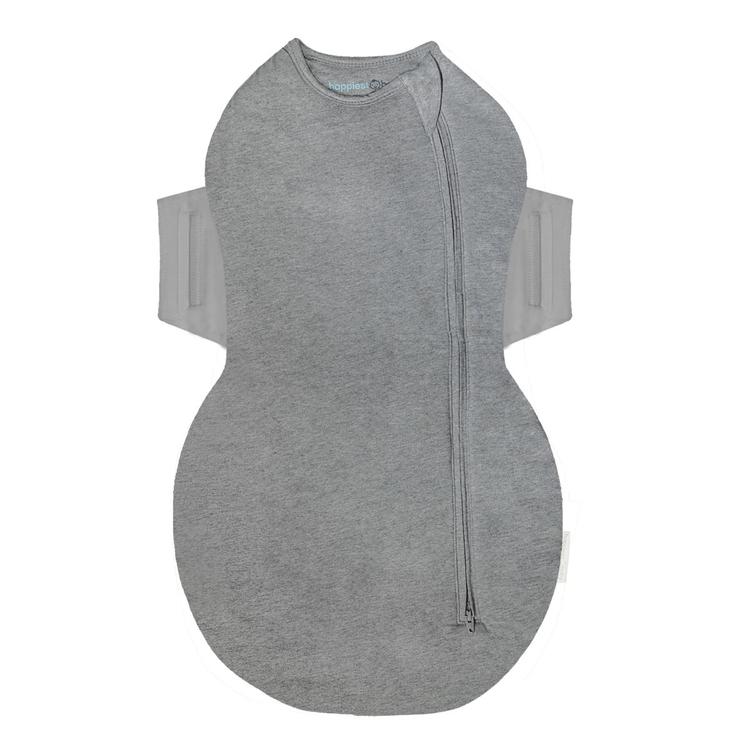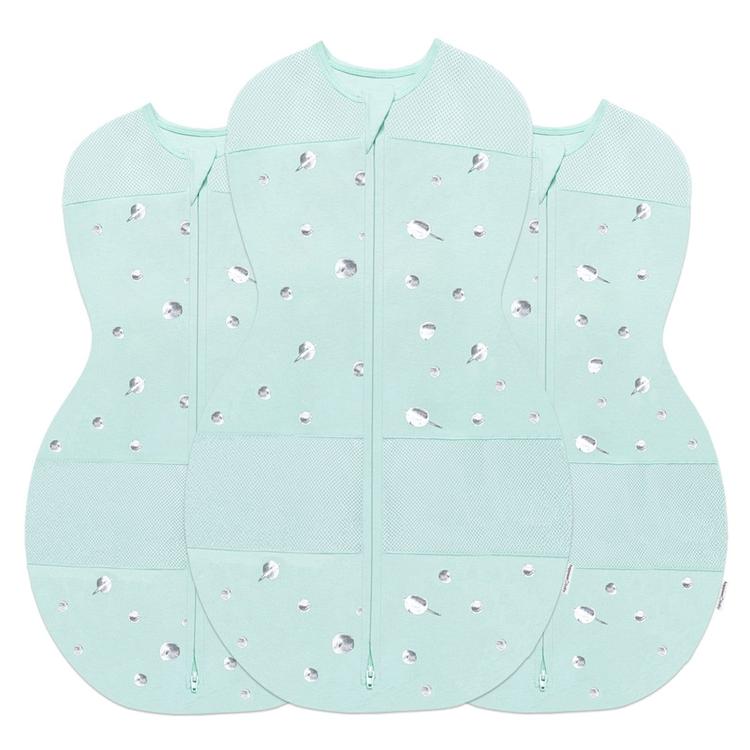BABY
Why Do Babies Like Dummies and Sucking?
Sucking lowers an infant's heart rate, blood pressure and stress levels!

Written by
Dr. Harvey Karp
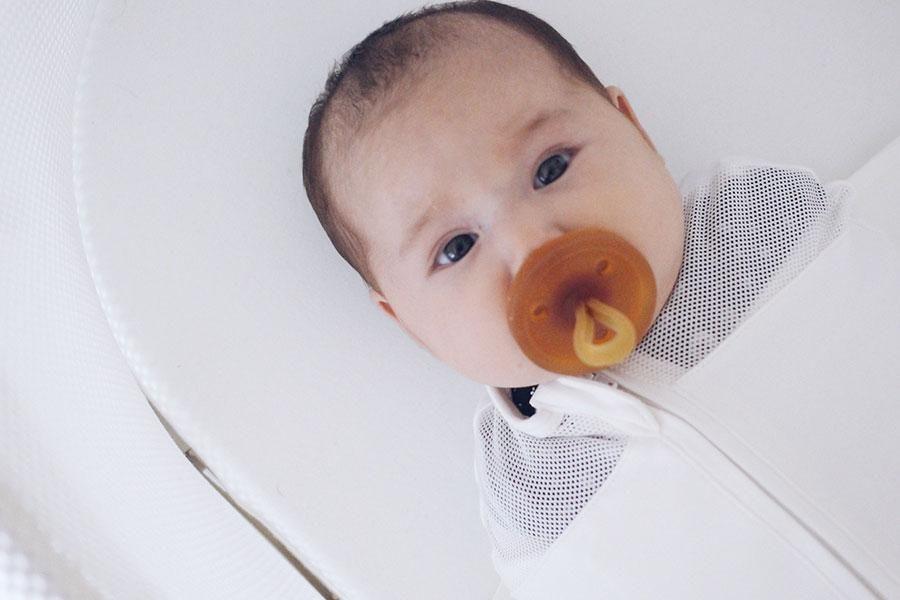
Babies like sucking on dummies because it reminds them of being in the womb. In fact, sucking is one of 5 womb sensations (known as the 5 S's) capable of triggering a baby's innate calming reflex.
About a Baby’s Sucking Reflex
Sucking's power to calm babies is quite extraordinary: It lowers the heart rate, blood pressure, and stress levels; it even reduces crying after shots and blood tests. It is incredible how much pleasure a simple dummy can bring your little one throughout the day!
Why Sucking Makes Babies Instantly Happy
A baby's survival depends on sucking. This skill is so important that babies start practicing long before birth! In utero, it is easy for babies to suck their fingers because the womb's soft walls deflect their hands toward their mouth. After birth, newborns do not suck their fingers much because they have poor muscle coordination. They may attempt to suck but they are more likely to whack their hand on their nose than find the mouth. That is why babies are so relieved when we pop a dummy, breast, or bottle right into place. Healthcare providers call infant eating nutritive sucking.
What is Nutritive Sucking?
Nutritive sucking is when a baby is sucking to gain nutrients from milk. New babies grow so fast they need a milky meal 8 to 12 times a day. Some people say they eat like ‘little pigs,’ but piglets can not hold a candle to our babies! Every day our little ones ‘snort down’ three ounces of milk for every half kilo of their body weight. That is like you guzzling five gallons of whole milk every day, seven days a week!
What is Non Nutritive Sucking?
While nutritive sucking is when a baby gains milk for sustenance, non nutritive sucking is when a baby is sucking but are so full that they are just doing it for comfort.
When babies suck on a dummy, toy, or thumb, it is called non-nutritive sucking (because it yields no nutrition). Like baby meditation, non-nutritive sucking helps babies stay calm amid the chaos of the world around them. But as hunger builds, your baby will eventually spit the dummy out, as if to complain, ‘Hey, I ordered milk—not rubber!’
After some great nutritive sucking—that is, a good feeding—she will happily accept the dummy again.
The Benefits of Dummies
Some parents never offer their baby a dummy because they worry it is habit forming. Fortunately, it is impossible for babies to suck too much. It is not candy or an addiction; it is an integral part of the 4th trimester and one of your baby's first steps toward self-reliance.
Do Paediatricians Recommend Dummies?
The Lullaby Trust recommends that parents begin providing their newborn baby with a dummy after breastfeeding is well established, which can take a few weeks.
As a special bonus, scientists have discovered that sucking a dummy at bedtime and naptime can lower your baby’s risk of SIDS . . . even if she spits it out after falling asleep. (Although, healthcare professionals have yet to figure out how this bit of sucking works such wonders.)
Can Babies Sleep With a Dummy?
Giving your baby a dummy at bedtime may help reduce the risk of SIDS and suffocation during sleep. While the exact science of ‘why?’ remains a mystery, you can rest a little easier knowing your infant is sleeping safely.
When Can I Give My Newborn Baby a Dummy?
Bottle-fed babies can sleep with a dummy right at birth. Breastfed babies can start as soon as nursing is going well.
Do not be surprised if the dummy becomes your child's best friend. For many babies, sucking is the most calming of the 5 S's!
Disclaimer: The information on our site is NOT medical advice for any specific person or condition. It is only meant as general information. If you have any medical questions and concerns about your child or yourself, please contact your health provider. Breastmilk is the best source of nutrition for babies. It is important that, in preparation for and during breastfeeding, mothers eat a healthy, balanced diet. Combined breast- and bottle-feeding in the first weeks of life may reduce the supply of a mother's breastmilk and reversing the decision not to breastfeed is difficult. If you do decide to use infant formula, you should follow instructions carefully.
SHARE THIS ARTICLE
PARENT PICKS
Bestsellers











